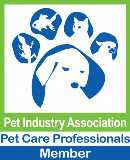Supplementing your birds diet with fruit and vegetables is the easiest and most natural way to provide them with nutrients which are essential for healthy growth and development. Malnutrition from a lack of vitamins and minerals in a birds diet can form numerous health concerns. For example, vitamin D and calcium deficiencies lead to the growth and strength of a bird's eggs, beak, claws and skeleton being compromised. However some foods, even fruits and vegetables, can be unsafe for your bird to eat, either because they may be toxic or cause digestion problems, so below is a list of some of the safe fruit and veggies for your bird.
Safe Fruit and Vegetables
|
|
|
A selection from each of the following fruit and vegetable colours should be fed daily to ensure a balanced diet ??? green, white, red, orange/yellow.
Note: When feeding stone fruits or fruits with seeds such as Apples, Plums and Grapes - seeds must be removed!
While fruit and vegetable are fantastic for your bird, they do not serve as a complete diet and should be supplemented with other dry foods such as seeds, nuts and pellets. With our increasing knowledge on bird nutrition, pellet foods have come a long way and where possible we suggest putting your bird on a premium pellet mix over a seed mix. This is because birds will often pick out the least healthy seeds from a mix, such as sunflower seeds (which are very fatty), and won't gain the nutrition they need. A good quality pellet on the other hand, will act as a complete diet; containing all the essential minerals and vitamins required. Pellets can create less mess (no seed husks left behind) and can greatly improve a birds feather quality, bone development and general health, especially for birds that don???t eat a variety of foods.
For birds that don't take well to fruits and veggies and also don't like pellet mixes, such as your grass eating cockatiels and finches, we suggest mixing a vitamin and mineral supplement into their food and/or water on a weekly basis.
THINGS YOU SHOULD NEVER FEED YOUR BIRD
- Caffeine, Tea, Coffee, Chocolate
- Onion, Rhubarb, Avocado
These foods are toxic to birds!!! While they may not harm your bird immediately, feeding your bird these foods will cause them long lasting damage.
WHY PET HQ ?
Pet HQ is not a franchise, we are a locally owned and independent business that is unique to Townsville. By shopping at Pet HQ you are supporting Townsville local businesses, thank you.
Pet Industry Association Member 
As a member of PIAA, Pet HQ does not condone puppy farms and we are dedicated to the sourcing of our puppies from responsible breeders that are subject to independent audit each year. By registering our puppies with PIAA we also ensure that any puppy purchased from our store that becomes unwanted or abandoned, at any age, is re-homed. See here for more information.
 Delivery Service
Delivery Service


